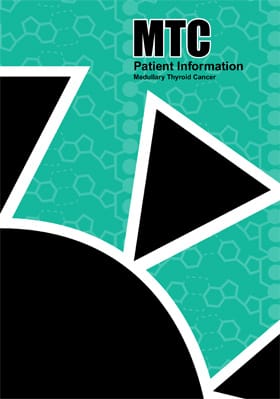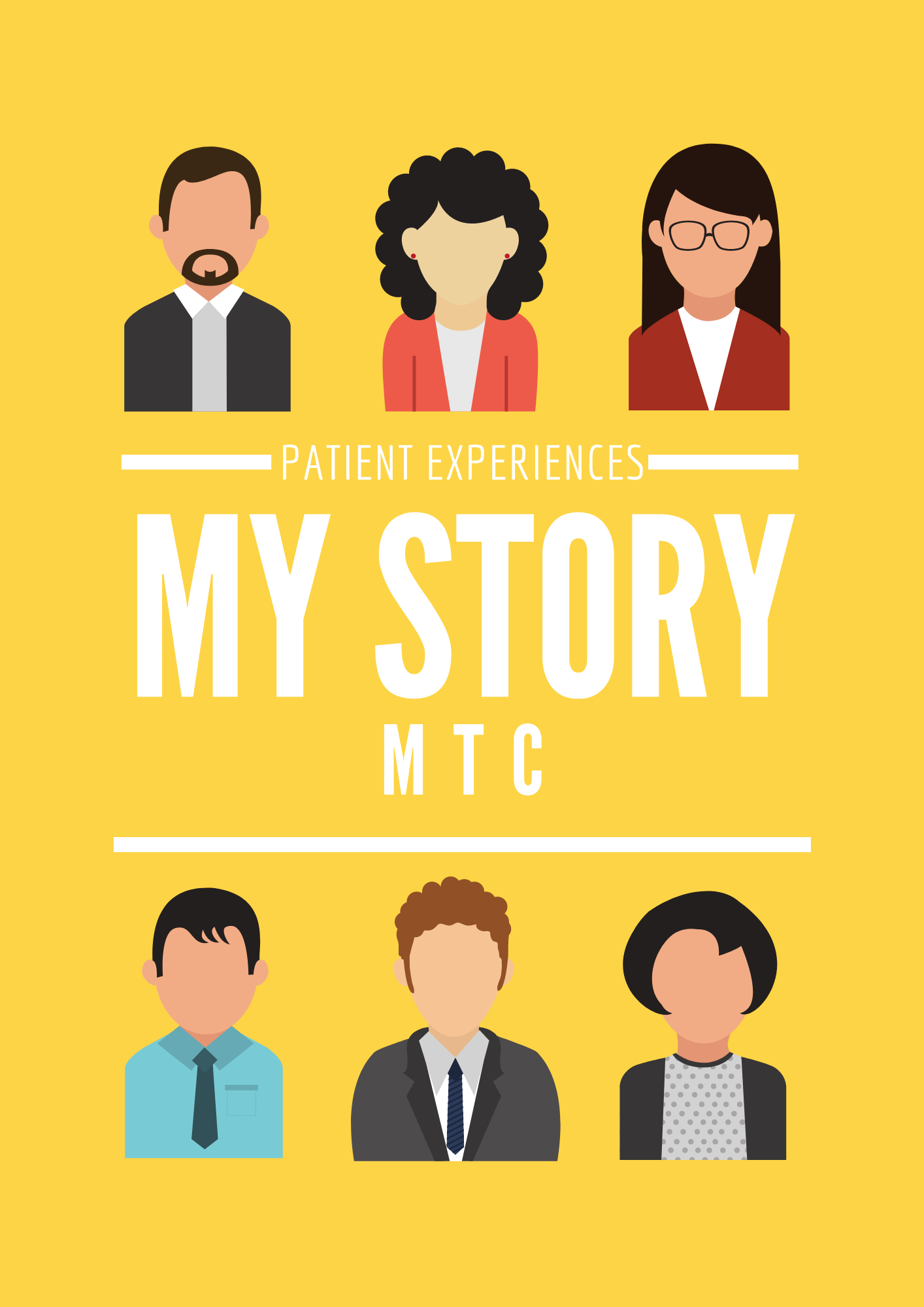-
What is MTC?
Medullary thyroid cancer (MTC) is a rare form of cancer of the thyroid gland in the neck. MTC accounts for about 7 in 100 cases of thyroid cancer.
When there is no family history of the disease and MTC occurs as an isolated case, it is called sporadic MTC. In 25% (1 in 4) of all cases, MTC occurs as part of rare inherited (genetic) disorders called Multiple Endocrine Neoplasia Type 2 (MEN2) or Multiple Endocrine Neoplasia Type 3 (MEN3). For this reason, all MTC patients must be offered DNA screening (a genetic blood test) for MEN2.
-

Symptoms of MTC
In most cases, patients may first notice a lump in the neck which has not been present before. Other symptoms may include:
- difficulty swallowing due to a thyroid tumour pressing on your gullet
- breathing difficulties due to a thyroid tumour pressing on your windpipe
- a hoarse voice that doesn’t improve over time
- feelings of pressure or discomfort in your neck.
Some patients with advanced MTC may suffer with diarrhoea and/or flushing caused by a larger-than-normal quantity of hormone (calcitonin) being made by the tumour.
Diagnosing MTC
A diagnosis of MTC is usually made using:
- blood tests to measure levels of a hormone called calcitonin and a protein called CEA,
- an ultrasound scan, and
- a Fine Needle Aspiration (FNA) biopsy.
Treating MTC
MTC usually develops over a number of years but can spread early on to nearby lymph nodes. If the thyroid and nearby lymph nodes are removed by surgery while the cancer is still contained within the thyroid (total thyroidectomy and central lymph node dissection), a patient is usually cured. Surgery is best performed by an expert surgeon who does a large number of these surgeries each year. You can now look at who these surgeons are via the British Association for Endocrine & Thyroid Surgeons (BAETS) audit data.
After removal of a thyroid gland, a medicine called levothyroxine will need to be taken for life. This replaces the hormones that the thyroid would make and is generally well tolerated.
If, after surgery, calcitonin levels are still raised, this may mean that the cancer has spread (become metastatic) or has not been completely removed, and so further surgery and newer therapies may be used to control it. Metastatic MTC rarely responds well to regular chemotherapy or radiation treatments which means that early diagnosis is essential. Nevertheless, it is usually slow growing and may often be managed effectively and without symptoms for many years.
Further Reading
For further detailed information on Medullary thyroid cancer (MTC) and its treatment, please read the AMEND Patient information Book which was produced with the assistance of the AMEND Medical Advisory Team. We recommend that you discuss the contents of this book with your specialist – it is not for use in self-diagnosis, and not all of the information it contains may be relevant to you.
FURTHER READING
-
MTC Patient Information Book

3rd Edition, updated October 2022
View Booklet
Author: Jo Grey, AMEND CEO, with the help of the AMEND Medical Advisory Team
PATIENT EXPERIENCES
-
MTC PATIENT STORIES

-
WRITE YOUR STORY

Want to write your own story but don't know where to start? Use our handy template for inspiration! Scan and send by email or pop it in the post.
Click here to download
References and Information Production
Be involved
-
Make a donation
AMEND has a variety of ways to donate to show your appreciation for our work.
Donate now
-
Become an AMEND member
Membership is free so come and join our family
Join us
-
Latest News
AMEND is pleased to bring you our latest publication: ‘Starting a Family: Your Choices’. Funded by a grant from the Society for Endocrinology, this…
View News